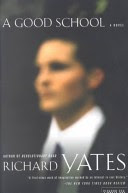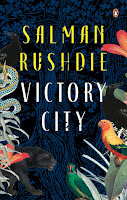I saw this city for the first time sixteen years ago. And I fell in love with it. Just like that. A small town girl dazzled by the big city lights. There was an anxious uncle hovering over me teaching me the basics of getting around the city - the trains, east and west, fast and slow, indicators and platforms. I took to it like fish to water. Within days, I had found PG digs. And here I was, a young woman on my own in the big bad world, embarking on the adventure of a lifetime.
It was the place where I felt grown up for the very first time. An adult, taking my own decisions, a bonafide working woman, independent and cool. When I got out of VT station, when I took a shared taxi and much later, when I looked out of a Nariman Point office over the Oval Maidan, my fantasy was quite complete. The girl who watched Colleen Khan in the Pond's Dreamflower ad with such longing was now Colleen Khan herself.
It was also the city where I fell in love. A city perfect for falling in love. With a million ways to be together and no one to forbid it. Late nights and countless movies, long train rides with the rain beating down on you in the doorway, longer taxi ones, Irish coffee at Prithvi, horrible sandwiches at Sundance, the sea spray on Marine Drive - I couldn't have been happier.
I am older today. I don't wear those rose tinted glasses anymore. I can see the brutality of the city without romanticising it. Traffic jams annoy me, the din during Diwali is excruciating. I can no longer get myself onto a crowded train and rain on my face feels more bothersome than romantic. I can feel the hardness in me.
So there are times when I dream of getting away from this city altogether - to a gentler, more gracious place. But just once in a while, in those half-awake moments of an early morning, or when I enter a new, noisy bar filled with pretty, young things, or even when I rush past Marine Drive towards some terribly boring meeting, those heady feelings of that first year in the city come flooding back - the adventure of growing up, of discovery, of youth and possibilities, of being incredibly, intensely alive.
And my 40 year old self knows she cannot leave this place just yet - if only to hold on to her 24 year old self for just a while longer.







